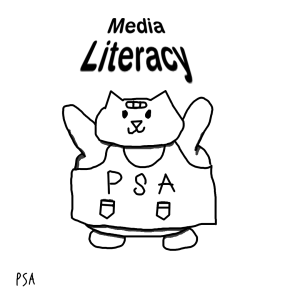Media Literacy
In the internet age, with what seems to be an endless flow of information dropping day-by-day, second-by-second, it is important now, more than ever, to be able to question and evaluate media in all forms. Credibility is something that is increasingly difficult to track, and especially as traditional institutions are being pressed on how trustworthy they actually are, and the introduction of AI has presented a new source of nice-sounding nonsense, finding a place with information to trust is a notable challenge.
How can you evaluate media in the current information landscape? Evaluation. Lots of evaluation.
Here are a few short-hand recommendations for evaluating media:
- Identify what the piece of media is attempting to be. What is the genre of the media? Is it meant to entertain? Is it trying to present facts? Is it making claims and comparisons? Is it just an opinion?
- If any kind of claim is being made, assume it is dubious unless there is sufficient evidence to prove the claim. Are you reporting that Godzilla has arrived off the coast of California? Prove it. Find the citations, and use a similar evaluation to see whether or not they’re valuable and actually help prove the point. If they don’t, you have found something to ignore.
- Find and understand the history and credibility of the source. As stated earlier, we’re facing a point in time where traditional institutions are being tested on their own credibility, but it is obvious because they had credibility to start with. There are systems in place around things like journalism that can help evaluate whether something is being presented appropriately or not. On the otherhand, when new media and personalities appear, there is much less to base motive and message off of and thus their burden of proof to justify their story and claims is much higher, and if it doesn’t hold up under scrutiny, it’s far less likely that “you just don’t get it” and more likely that there may be nothing there.
A good rule of thumb, assume everything you read online is false unless you can find sufficient evidence to prove otherwise. It’s a difficult practice to not take the constant flow of information at its word, but to question it all will save you from that information’s boon companions: fear and catastrophe.

